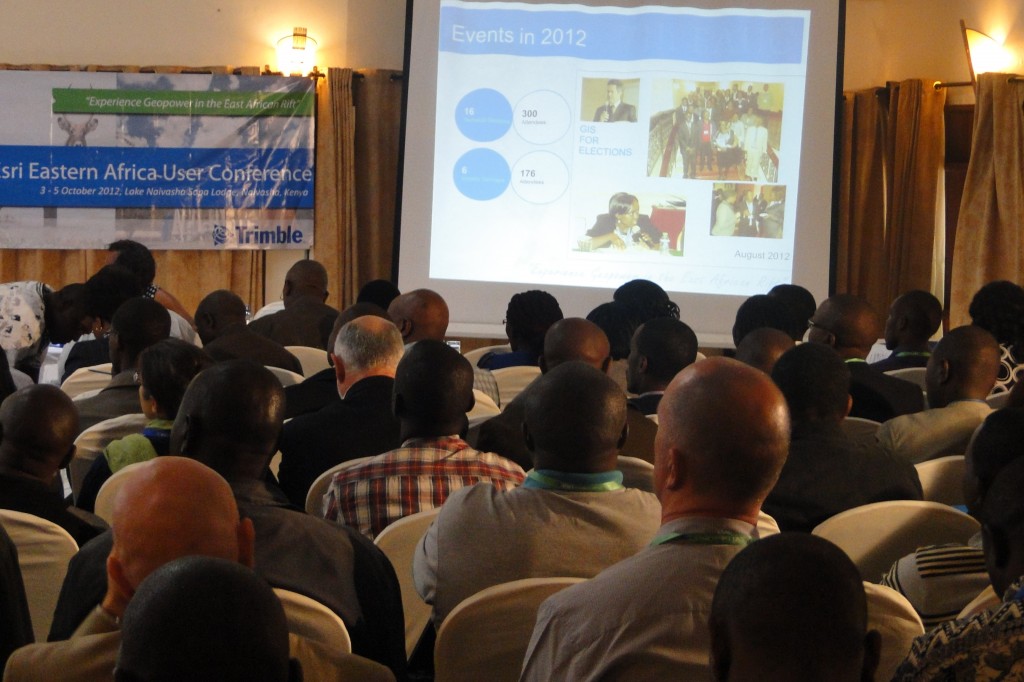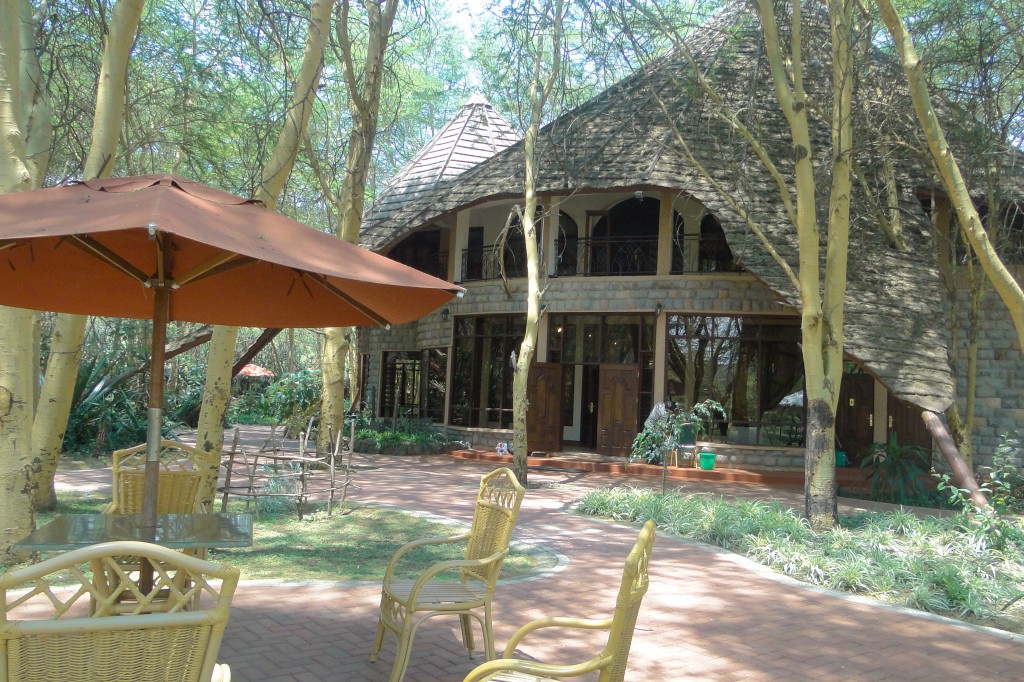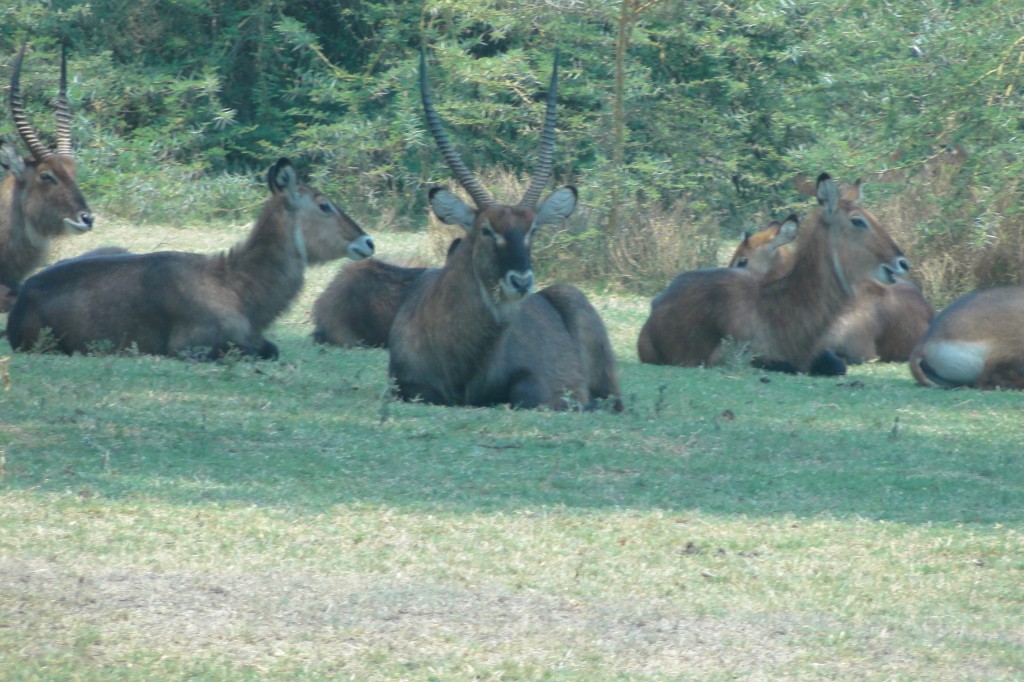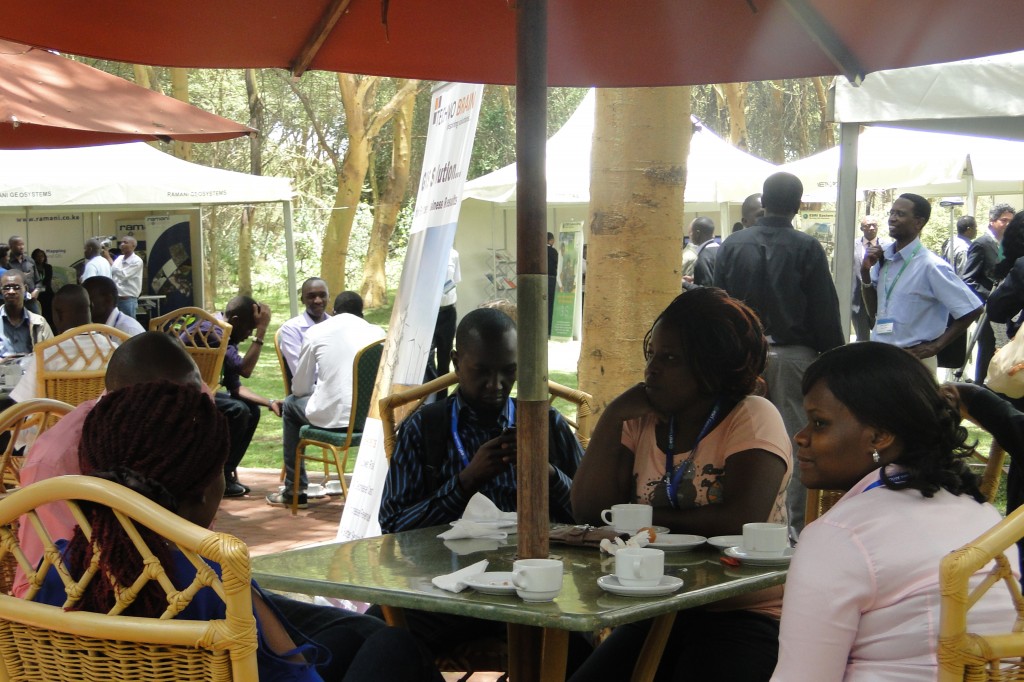First we would like to thank ESRI East Africa for giving us the opportunity to be part of their 7th user conference. The Map Kibera Trust members present at the conference were Zachariah Muindi and Maureen Omino. This year’s theme was “Experience Geopower in the East African Rift” and the choice of the venue was great because it was just in line with the theme of the year, with it being located in the Rift Valley, on the shores of Lake Naivasha, with the Olkaria geothermal power station just a few km away, providing a good site to go for the conference safari.
The conference was just a wonderful experience that created a conducive environment for networking, sharing and learning with participants from different parts of the world, from different organizations and institutions.. The sessions were so awesome, interactive and educative. The opening session was graced by the Permanent Secretary of the Ministry of Land, who shared the changes that have taken place in the ministry thanks to GIS. Most of the maps that the ministry had were so outdated and the introduction of GIS to the ministry was a major boost to creation and publishing of new maps and constant updating of the maps. In one way the Ministry of Land affects a lot of ministries in Kenya therefore if wrong and outdated data is dished out automatically it will affect the services provided by the other ministries.
We would also like to congratulate the different organizations that scooped this year’s award at the User Conference for their outstanding job. This is clear enough that the use of the mapping has brought a huge relief to many organizations, government ministries, municipalities’ problems. The sessions at the conference were divided into two; there was the industrial sessions that focused on the applicability of ArcGIS to come up with solutions for different issues that affect human settlements, wildlife, nature e.t.c.
My colleague Maureen presented (slides here) in one of the sessions on mapping slum areas using OpenStreetMap and ArcGIS. She explained the whole work that we have been doing as a Trust starting from our Kibera pilot project, to the work that we have done in Mathare and finally on the current work that we are doing in Mukuru, and how we use GIS in creating and publishing our maps. The feedback after the presentation was just great. We also prepared and presented a paper at the conference that explained in detail the work that we have done in Kibera, Mathare and especially in Mukuru. It highlights the whole process that we undertook from the word go in Mukuru, from identifying the area, organizing community forums, to data collection and editing the data and the creation and publishing of the final maps.
There was also a presentation on crime mapping and analysis using a web based portal by Simon Ngegi Njuguna, where he shared how technology can be introduced to the police department to curb the rising issues of insecurity. Web based platforms can engage the public to report any incidence of insecurity, and once the report is sent to the police it can be analyzed and be published to the public as a warning, be used to communicate with the police on the ground about the exact location of the incidence and the easiest and fastest way they can reach there. And I do believe if this is implemented it would be a milestone to the police department that would help them serve the public efficiently and protect them. More details check out the presentation.
From the conference we learnt that there are other ArcGIS services that we can in cooperate in the work that we doing as Map Kibera, apart from the one that we have been using to create maps. We can also work with ESRI East Africa and see how they can help us bring in the new system where we saw with the use of a simple smartphone you can collect data from the field, send it to someone who is in the office, and he can analyze the data prepare a map using the data and publish to the public and other key stakeholders that are associated with information. We think this could be helpful for us as a Trust, especially now that we are starting the project on election monitoring.



